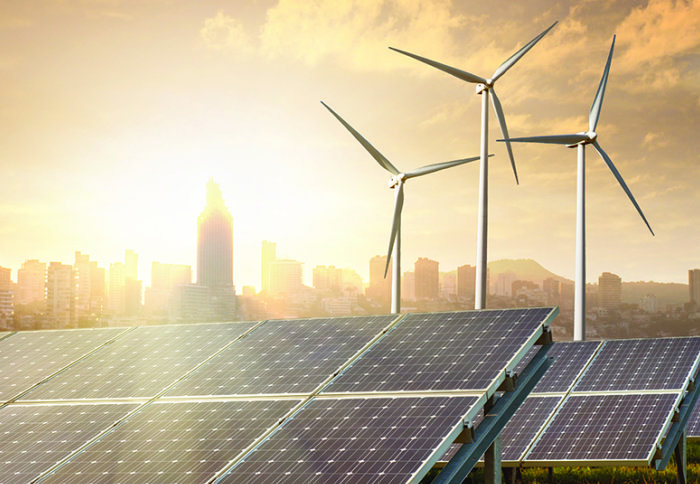A low carbon future needs an integrated energy system, say Imperial researchers

A report from Imperial College London outlines the benefits, and challenges, of creating a low carbon future with a fully integrated energy system.
Energy Futures Lab’s latest briefing paper, Unlocking the potential of Energy Systems Integration, investigates how the UK can link heat, transport, electricity and other energy vectors into one interconnected ecosystem. Building such a system is potentially a cost-effective way to decarbonise our energy sector and produce a more reliable and resilient system.
Energy Systems Integration’s underlying concept is the coordination, and integration, of energy generation and use at local, regional and national levels. This relates to all aspects of energy from production and conversion to delivery and end use.
“The thing is much of our energy system is interdependent but not integrated,” says Dr Aidan Rhodes, one of the paper’s authors, “We have come a long way from the mid-20th century but everything is still designed to operate independently with dedicated, single-use, support networks.”

The paper lays out the immense opportunities of having an interconnected and integrated energy ecosystem and the technologies that could make it a reality. Among these is enabling variable renewable electricity and lower-carbon fuels to provide energy services traditionally provided by higher-carbon sources. This could be realised through a more resilient system incorporating greater flexibility and more diverse energy sources.
However the report also discusses the many challenges involved in making an integrated energy system a reality. The key problem would be the complexity of a highly integrated energy system. This would be exacerbated by the current fragmented nature of institutions and market structures in different energy sectors.
The authors argue that there are two important hurdles. The first is the massive need for multidisciplinary efforts in research and development to allow the full integration of disparate systems and technologies. The second is the need for strong policy support to make wider integration work. Market arrangements will need to be changed so that they encourage investment in new and different types of flexibility.

“If we truly want an integrated energy system, which we believe is the sensible solution to many issues, then we need long term visionary political thinking,” says Dr Jacqueline Edge, another of the paper’s authors, “We don’t need winners to be picked but just an idea of what kind of energy system we want to build for a 21st century Britain.”
The paper was written by Dr Richard Hanna, Dr Evangelos Gazis, Dr Jacqueline Edge, Dr Aidan Rhodes and Dr Rob Gross on behalf of Energy Futures Lab and launched on 25 April 2018 at an event at Imperial College London.
You can download the full briefing paper [PDF], from the Energy Futures Lab website and a video of the launch will be online soon.
Energy Futures Lab’s Briefing Papers are periodic reports aimed at all stakeholders in the energy sector. They bring together expertise from across Imperial College London to provide clarity to a wide range of energy topics.
The previous paper in the series reviewed the evidence surrounding electricity supply security in the UK to determine whether there is a serious risk of electricity supply issues, what the issues and concerns are and why the topic is so controversial.
The next report will be released in autumn 2018 and tackle the solutions to covering the systems cost of renewable energy generation.
Article text (excluding photos or graphics) © Imperial College London.
Photos and graphics subject to third party copyright used with permission or © Imperial College London.
Reporter
Neasan O'Neill
Faculty of Engineering